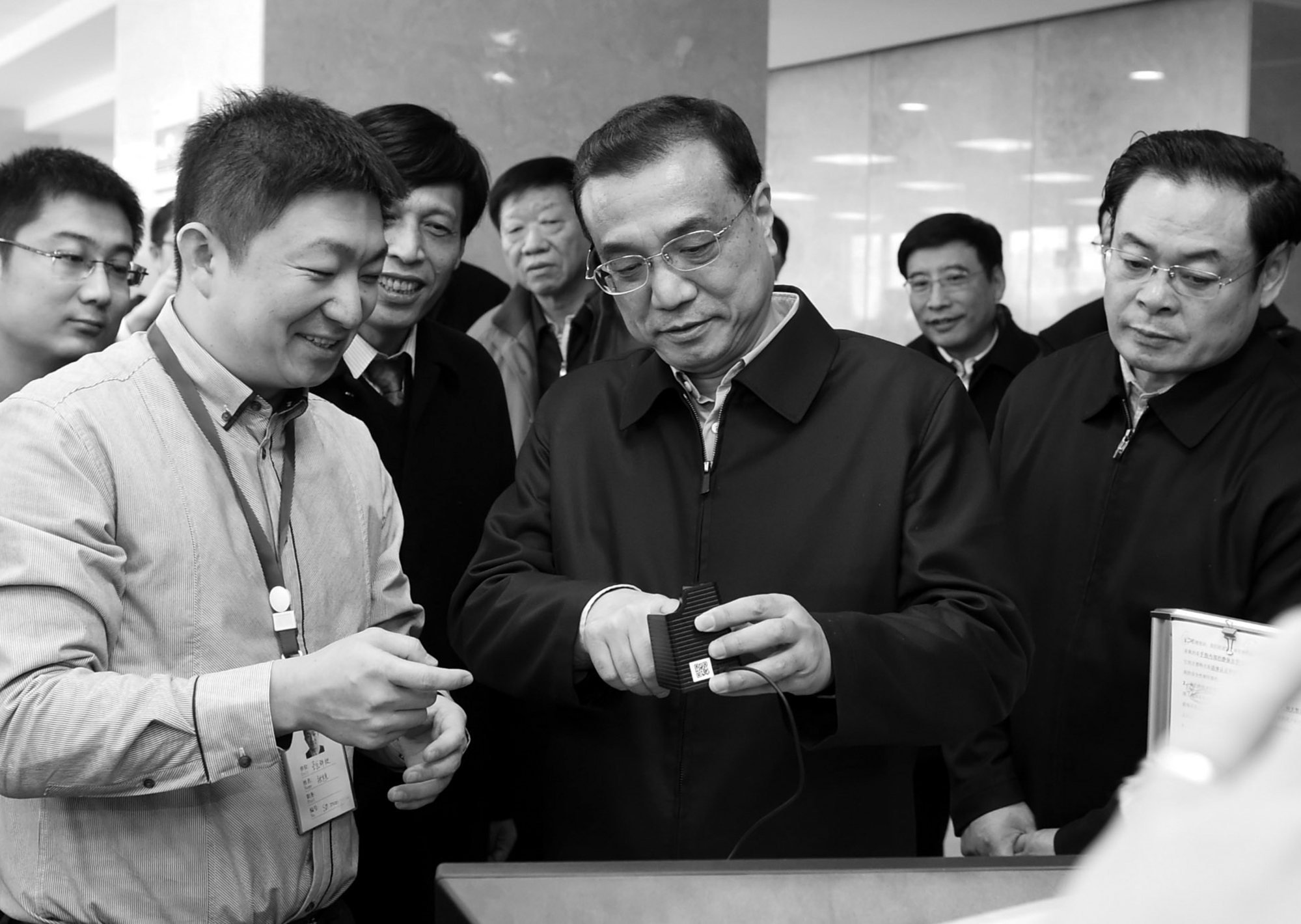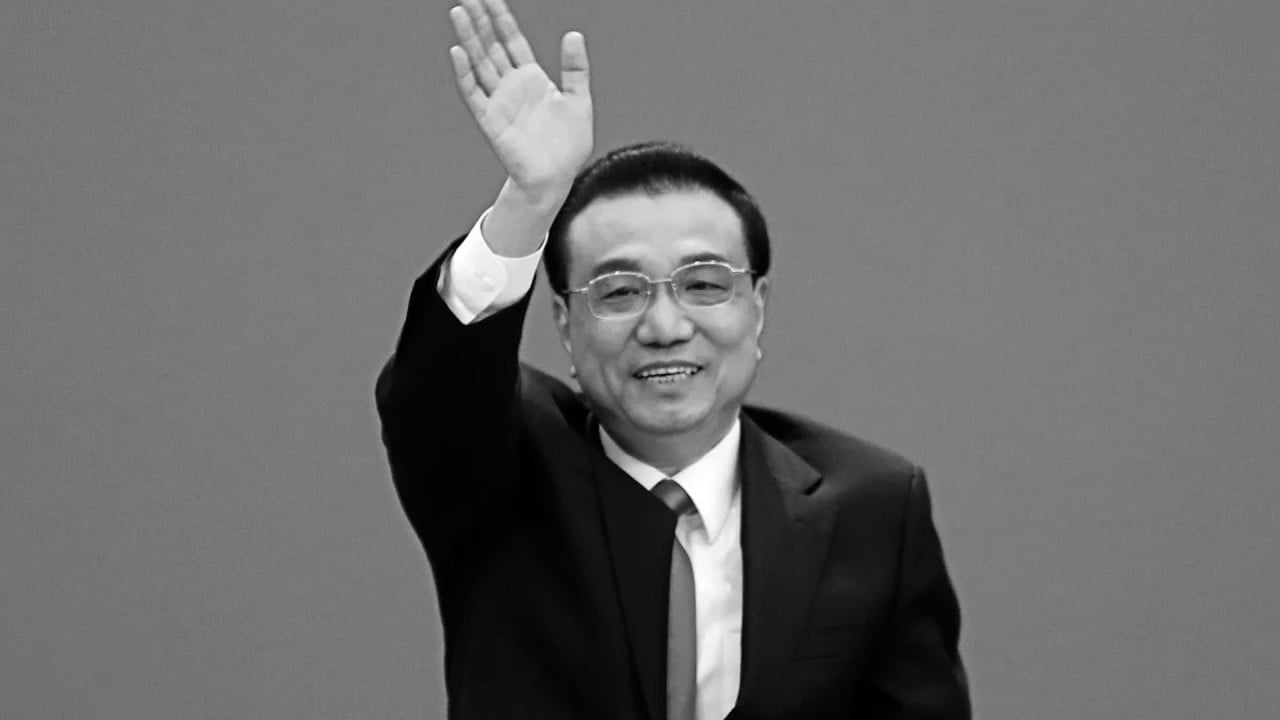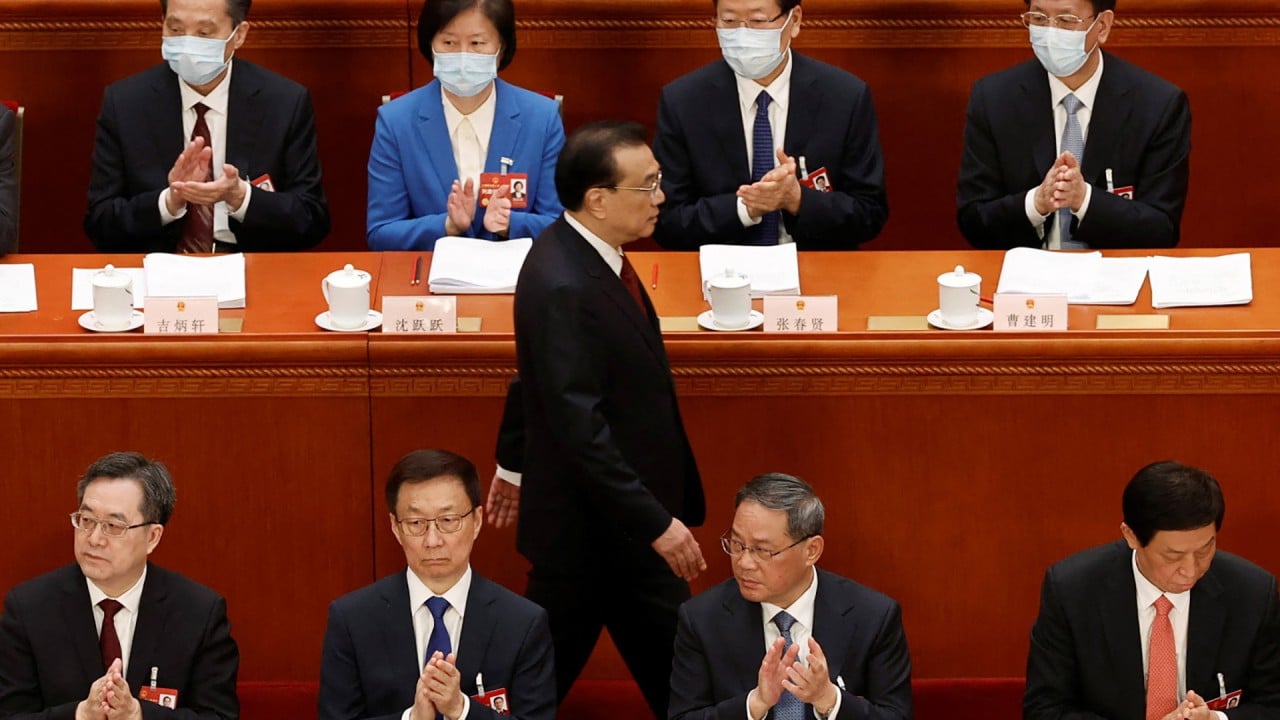
Li Keqiang: former premier who gave scientific research ‘rock-star status in China’
- ‘Grievously saddened’ science community recalls trained economist Li Keqiang’s unwavering support for basic research as a driver of national growth
- Li, 68, died early on Friday following a heart attack, seven months after stepping down from political stage
While best known for steering the world’s second-largest economy for a decade, Li had also been an advocate throughout for basic research and scientific development to support national growth.
Li believed that innovation and development of science and technology required fundamental support from basic science, the foundation of which is mathematics, which he called the crown of natural science, according to reports from state news agency Xinhua.
He also called on researchers to stay devoted, achieve scientific breakthroughs with their imagination and creativity, and strengthen international cooperation.
Li’s support for the scientific community dated back to his time as vice-premier, from 2008 to 2013.
“Li was the only national leader our lab had ever received. He was very energetic when we met,” the geochronologist said.
“I was assigned to introduce our laboratory to him. He listened to me and asked other colleagues lots of questions,” Liu said, adding that Li also talked to top scientists about climate change later in the day.
“Before he left, he encouraged us to work hard to advance science and technology for our country and acknowledged our efforts.”
Liu said it was the former premier who drove the boost in funding, campus space and recruitment for the Chinese Academy of Geological Sciences, the parent institute of SHRIMP.
“Scientists from the academy are grievously saddened by the sudden death of Premier Li! We will never forget his immense support to geological science.”
During his visit to the academy, Li said: “China’s geological exploration capabilities are well developed and competent in helping the country locate key mineral resources.”
“Geologists should continue to innovate and step up research efforts to uncover the mysteries of the earth and make top-notch science achievements,” he was quoted as saying by Xinhua.

During Li’s decade-long tenure as premier from 2013, China’s research and development spending grew from 1 trillion yuan (about US$136 billion at current rates), or less than 2 per cent of its 2012 gross domestic product (GDP), to more than 3.08 trillion yuan or 2.54 per cent of GDP in 2022.
China also spent a record 202 billion yuan on basic research last year, ranking second globally after the United States.
Li’s awareness of the importance of science and technology for economic growth became apparent early on during his premiership.
One year after taking office as China’s No 2 and top economic official, Li invited Marcia McNutt, then editor-in-chief of the leading journal Science, for a meeting in Beijing.
“The fact that the Chinese premier wanted to meet with me sent strong signals as to how China is seeing science as critical to its future well being,” McNutt, a geophysicist, wrote in an editorial for Science titled “Li and Me” recounting their meeting in 2014.
The half-hour appointment ended up lasting 70 minutes and covered issues ranging from China’s space programme, climate change and environmental protection, to education and international scientific cooperation, said McNutt, who now serves as president of the US National Academy of Sciences.
“Scientific research has attained rock-star status in China,” she wrote. “If the long-term result is that China’s most talented youth become researchers to find environmental solutions, then we all win.”
In an accompanying note, also published in the same edition of Science, Li was cited as saying that “developing renewable energy and conserving energy and resources can together contribute to GDP growth while preserving the environment”.
McNutt said the meeting remained one of the highlights of her leadership of Science.
“I was so impressed by his command of English to the point of his correcting the translator and his fascination with science,” she said.
“I admired the close relationship that Premier Li had with Bai Chunli, the president of the Chinese Academy of Sciences (CAS). It was that relationship that set up Chinese science to become the world-class system that it is today.”
“My condolences to all the citizens of China, and particularly to those who were touched by his leadership,” McNutt said on Friday.
Li was unwavering in his support for basic research, saying in 2015 that “the depth of basic scientific research determines a country’s innovation vitality”.
During a visit to CAS’ Institute of Physics that year, Li encouraged scientists to pursue more original research, calling on them to turn more of “Made in China” to “Created in China”.
In 2016, he told a national conference that, despite financial pressures, government investment in basic research could not be reduced, calling for it to only be increased instead.
Li, a trained economist with a degree in law, also encouraged practical applications of research.
At the 2014 World Economic Forum in Tianjin, Li first promoted his signature mass entrepreneurship and innovation campaign. Local governments at all levels jumped on board – subsidising incubators and innovation parks, and setting up venture capital funds to allow “microenterprises” to thrive within their jurisdiction.
A CAS scientist who had been trying to bring his research to the market since 1999, said Chinese society at the time did not encourage professors to engage in start-ups, citing cases of some facing legal troubles.
But after 2015, thanks to Li’s policies, the situation began to change.
“Li played a pivotal role in promoting tech transfer and fostering entrepreneurship. Policies like allowing scientists to launch a start-up have paved the way for China’s rapid development in recent years,” the scientist, who declined to be named, told the Post.
“[Such policies] are like a spring for entrepreneurs and investors,” Wang Chao, a researcher who founded a hi-tech firm, wrote on his social media account in tribute to Li on Friday.
“Li focused more on how science and technology could serve economic and social development,” said another CAS scientist who also asked not to be named.
A scholar specialising in China’s sci-tech policymaking agreed, saying on condition of anonymity that, after the ruling Communist Party’s 18th national congress in 2012, government policies had become more pragmatic and aimed at mobilising scientists’ enthusiasm.
The 2012 party congress set the stage for a new once-a-decade leadership transition that would see Li, then 57, promoted to premiership the following March.
“[Tu’s award] is a reflection of China’s progress in science and technology and the huge contribution of traditional Chinese medicine to human health, showing China’s increasing national power and international influence,” Li wrote in a congratulatory letter to the National Administration of Traditional Chinese Medicine, the parent institute of Tu’s workplace – the China Academy of Chinese Medical Sciences.




